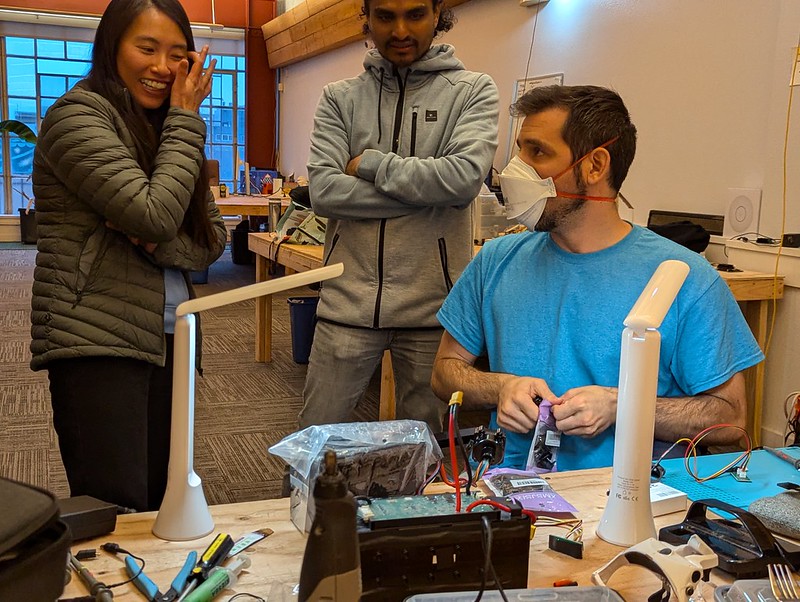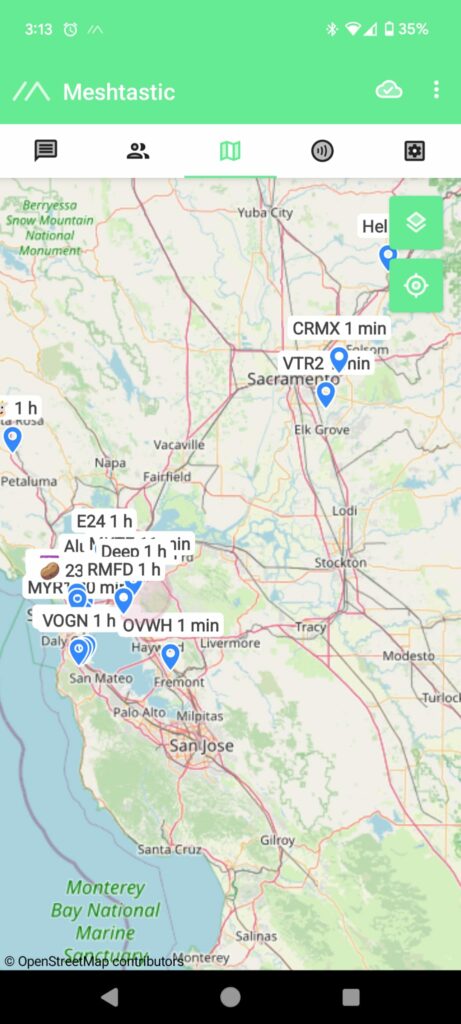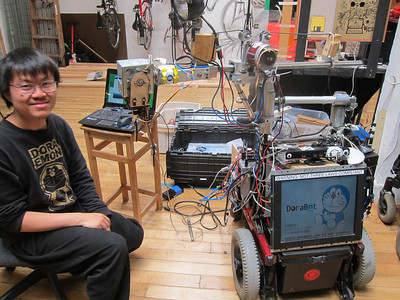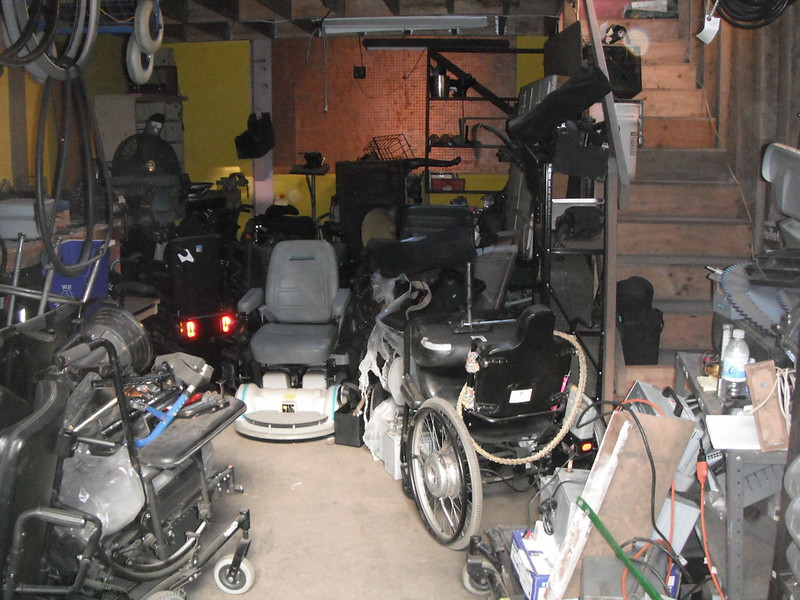Talking with people in the eternal hallway
I went to a sort of unconference, though I’m not sure what its formal categorization is if any. Back in the day when there were like 6 unconferences a week, open spaces, BarCamps, and so on in the Bay Area alone, it was semi hilarious to me to see the internecine battles over exactly what could and couldn’t be called “open” space. You can probably still find it somewhere, if you are a historian of such things, or enjoy reading stuff like MeatballWiki or C2. The debates raged! (imho partly because people wanted to define the specifics so they could own them; certificiation, professionalizing, consulting, etc. to be a licensed WhateverTechSummit operator.) At DevSummit I was noticing a refrain from the old guard of that commmunity, of missing those times & the fashion in small flexible self organizing conference spaces.
DevSummit, which is for “tech nonprofits”, gave a fairly loose framework that allowed for a lot of spontaneity in subject matter. There were frequent pauses to do “go-rounds” where everyone in the 100 person circle would say something: how they were feeling; what they are looking forward to; something they want to talk about today; something they learned today, and so on. Discussion groups were formed quickly with minimal preparation – you might have indicated the day before, or 5 minutes ago, that you had a topic and were wiling to facilitate a discussion. This worked well, and we had several rounds something like 15 groups, with 2-10ish people per group.
If you are a veteran of conferences you know the best bit is often the hallway track – ie the part of the conference between organized talks or panels, where you are standing around in the hall having informal conversations. DevSummit managed to maximize that feeling while providing useful structure. This is usually my experience of events that derive from the unconference or open space world.
I am trying to look for, or make, things that happen HERE so that I don’t have to subject myself to the physical difficulties of travel.
Anyway, I had a good time, met dozens of new people, connected with others I already knew, had a lovely dinner out one night and a happy hour the other, and had lovely conversations. Rosa gave me a tiny lego wheelchair kit, free nature journaling zines, and a gorgeous book from the Venice Biennial, “The Pleasures We Choose” which went deep in art and disability justice and culture and which is also beautifully designed and bound. (I am so admiring and jealous of its gorgeous design! The exposed signatures in the spine, the images and handwriting on the inside dust jacket, the nice rough texture of the cover and end papers/ front matter inside the jacket, the eggplant colored accent text throughout, the art, the poetry, the bibliography!!) I will read it through and I hope to report back on it with a real review.
I talked a bunch to people about my nonprofit, Grassroots Open Assistive Tech, and while I didn’t exactly get any immediate answers to my questions I now have a wider circle of people to invite to deeper conversations about what we are trying to do, and the nitty gritty of how to do it and with what tools.
One of the more top-down sessions I went to where mainly the facilitator talked, I got a lot out of because it was a somewhat alien perspective to me, about fundraising, which I need to do more of and learn more about. One side of the message was about approaching “funders” as peers who you are potentially engaged with as co-conspirators with a shared goal. I agree hard with that as it is in my nature, but I also always feel a bit sad seeing people approach “authorities” for their validation. Validation is nice but I don’t like the deferential / condescending attitude people can sometimes bring to it. My heart is with grassroots or small scale stuff most of the time. I also utterly don’t care if someone has some measure of fame or power. They are just a person. Maybe this is my early identification with punk, or stoicism, or both. But also as I am sometimes now in the funder position it sucks to deal with people who are outright trying to kiss my ass, or the flip side of people who don’t want to look like they are kissing my ass so they can barely speak to me. OMG. Well, anyway.
The other main point of the talk was something that made me more uneasy but that was very interesting. It was about sales vs. marketing, something I know zero about. In fact someone approached me at this conf to gossip about a long gone tech company I worked at 20+ years ago and I was like… I don’t know any of those people. The sales side of things was like another planet and I never talked to those people who also did not know what to make of anyone like me. I associated them with a falsely hearty slap on the back that leads suddenly to being inside the horribly traumatizing (to me) movie Glengarry Glen Ross. Anyway apparently marketing is one to many, but sales is one to one. Many slogans were said like, when you know a funder you know something about exactly one funder. It was kind of about “be yourself” advice, but kind of shading into manipulativeness which I guess is the uncomfortable part. Is it manipulative to “pitch” the part of “yourself” to an individual in this way? Dude looked right at me and was like “Well I could guess from my knowing you for like 2 minutes that pitching a narrative to you about Capitalist Bootstraps would not be right, and that instead it would be more of a Class War story.” I mean, Dude was correct. But also, yikes?
I can maybe best internally translate all this filthy orc-talk into something about storytelling or narratives, tropes, and registers of communication. But I also have to get over it to some extent since my nonprofit has to have some financial support in order to accomplish anything and it will not fall into my lap, so I have to learn to ask for it.
And a final note: apparently – a thing I have never heard mentioned – the origin of “Open Space Technology” (really??? technology? must we? get that bag i suppose) was from a minister who noticed it being used in small West African villages where he was working and them created his version of it and immediately formed a consulting company and an entire conference, the Organization Transformation Symposium, so, a new age consultant to Western big business. And that’s the Grifters Ripping Off Indigenous Cultures (GROIC – tm) update for today!!!






